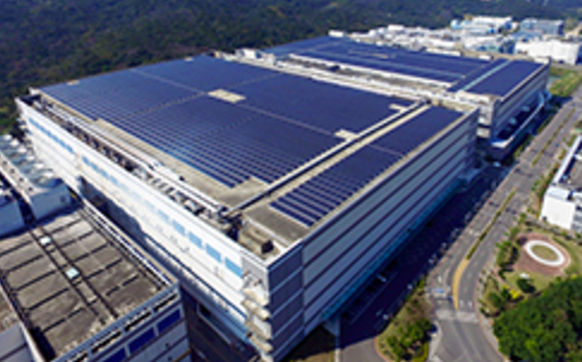The vertically integrated PV manufacturer secured a government permit to build the project in February 2016, according to an online statement.
The arrays are expected to generate enough electricity to cater to the needs of 3,000 households per year.
In February, AU Optronics finished building a 3.87 MW rooftop solar plant on top of a factory in the southwestern city of Tainan.
It plans to complete an additional 21 MW of rooftop and ground-mount solar capacity by the end of this year.
Last summer, it released its new SunVivo P-type monocrystalline solar modules. It claims its solar panels can withstand typhoon-level winds and corrosive air conditions in coastal areas.
The company posted a net profit of NT$8,375 million ($274.8 million) in the fourth quarter of 2016, from a quarterly net loss of NT$8,239 million a year earlier.
In September, AU Optronics agreed to sell its stake in an 800 MW solar cell factory in Malacca, Malaysia, to its joint venture partner SunPower for $170 million.
In early 2016, M. Setek — a Tokyo-based subsidiary of the Hsinchu-based manufacturer — announced that it would stop manufacturing solar-grade polysilicon so it could instead focus on the production of ingots.
The Taiwanese government is targeting cumulative PV installations of 1.52 GW by mid-2018, including more than 900 MW of rooftop capacity.
This content is protected by copyright and may not be reused. If you want to cooperate with us and would like to reuse some of our content, please contact: editors@pv-magazine.com.



By submitting this form you agree to pv magazine using your data for the purposes of publishing your comment.
Your personal data will only be disclosed or otherwise transmitted to third parties for the purposes of spam filtering or if this is necessary for technical maintenance of the website. Any other transfer to third parties will not take place unless this is justified on the basis of applicable data protection regulations or if pv magazine is legally obliged to do so.
You may revoke this consent at any time with effect for the future, in which case your personal data will be deleted immediately. Otherwise, your data will be deleted if pv magazine has processed your request or the purpose of data storage is fulfilled.
Further information on data privacy can be found in our Data Protection Policy.